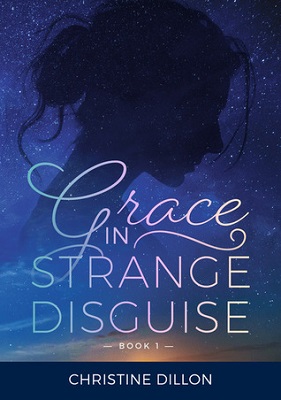In Search of Joy and Wisdom
by Steph Beth Nickel
In the English Standard Version, James 1:2-5 says, “Count it all joy, my brothers, when you meet trials of various kinds,for you know that the testing of your faith produces steadfastness. And let steadfastness have its full effect, that you may be perfect and complete, lacking in nothing. If any of you lacks wisdom, let him ask God, who gives generously to all without reproach, and it will be given him.”
I can almost guarantee we’re all going through a trial of some description. Thankfully, as believers, we can cling to the promises in this passage.
It won’t be easy. And the full effect of steadfastness won’t happen overnight, but we can rest assured that God will be with us each step of the way. And I need that assurance right now. How about you?
In the early days, COVID-19 exacerbated my tendency to procrastinate to a full-on “What’s the use?” attitude.
With God’s help, I pushed through … although I still have a tendency to put things off. However, I no longer believe my efforts to forge ahead are essentially futile.
And then George Floyd and the racial divide spotlighting the need for God-honouring forgiveness and reconciliation.
In Ontario, churches have been allowed to reopen with restrictions. You would think this would be a cause for celebration, that we would delight in the opportunity to be together again. And while that’s the case to a certain extent, we are witnessing everything from those staying away because of fear to those who think we should completely disregard the governments directives.
We have come to realize we don’t know one another as well as we thought.
Enter social media. Facebook, in particular, has become a place where we hurt one another because of the hurt we’ve been carrying, the hurt that those who attend church with us may not be aware of.
Enter, once again, the “What’s the use?” mindset.
Why would I explain myself? What good would it do?
Why would I share my perspective with that particular person? Their mind is already made up.
Why would I voice my opinion? It will only cause an argument.
Or the other extreme …
Why shouldn’t I voice my opinion? I want to start a conversation. (Sadly, this “conversation” often devolves into something completely emotion-driven and just causes more hurt—especially if posted online.)
After 35+ years in the same church, I have seen countless hurts and disagreements. Those are unavoidable. I get that.
But what do you do when one person you love and care about wounds another but you haven’t witnessed it firsthand?
You want to submit to authority.
You don’t want to cause division.
But you believe we, as the body of Christ, could be more than this, more genuine, more authentic, more loving.
I long for the day when beloved brothers and sisters don’t simply disappear into the night as it were.
However, in all this, I must cling to James 1, trusting God to work it all out not only for me but also for all those involved.
When we face trials and heartbreak, we can count on God’s promises.
When we just don’t know what to do or say, we can ask for wisdom and trust Him to provide it.
It may be cliché, but “God’s got this!” And boy, am I glad!
Tweetables:
The full effect of steadfastness won’t happen overnight. (click to tweet)
God will be with us each step of the way. (click to tweet)
What do you do when one person you love and care about wounds another? (click to tweet)
When we face trials and heartbreak, we can count on God’s promises. (click to tweet)
When we just don’t know what to do or say, we can ask for wisdom and trust God to provide it. (click to tweet)


Steph Beth Nickel is a freelance editor and writer and an author. If you would like more information about her services, you can contact her at stephbethnickelediting@gmail.com.
You’re invited to visit her website: http://stephbethnickeleditor.com/.
You can join her Editing Tips Facebook group here: https://www.facebook.com/groups/418423519384351.







